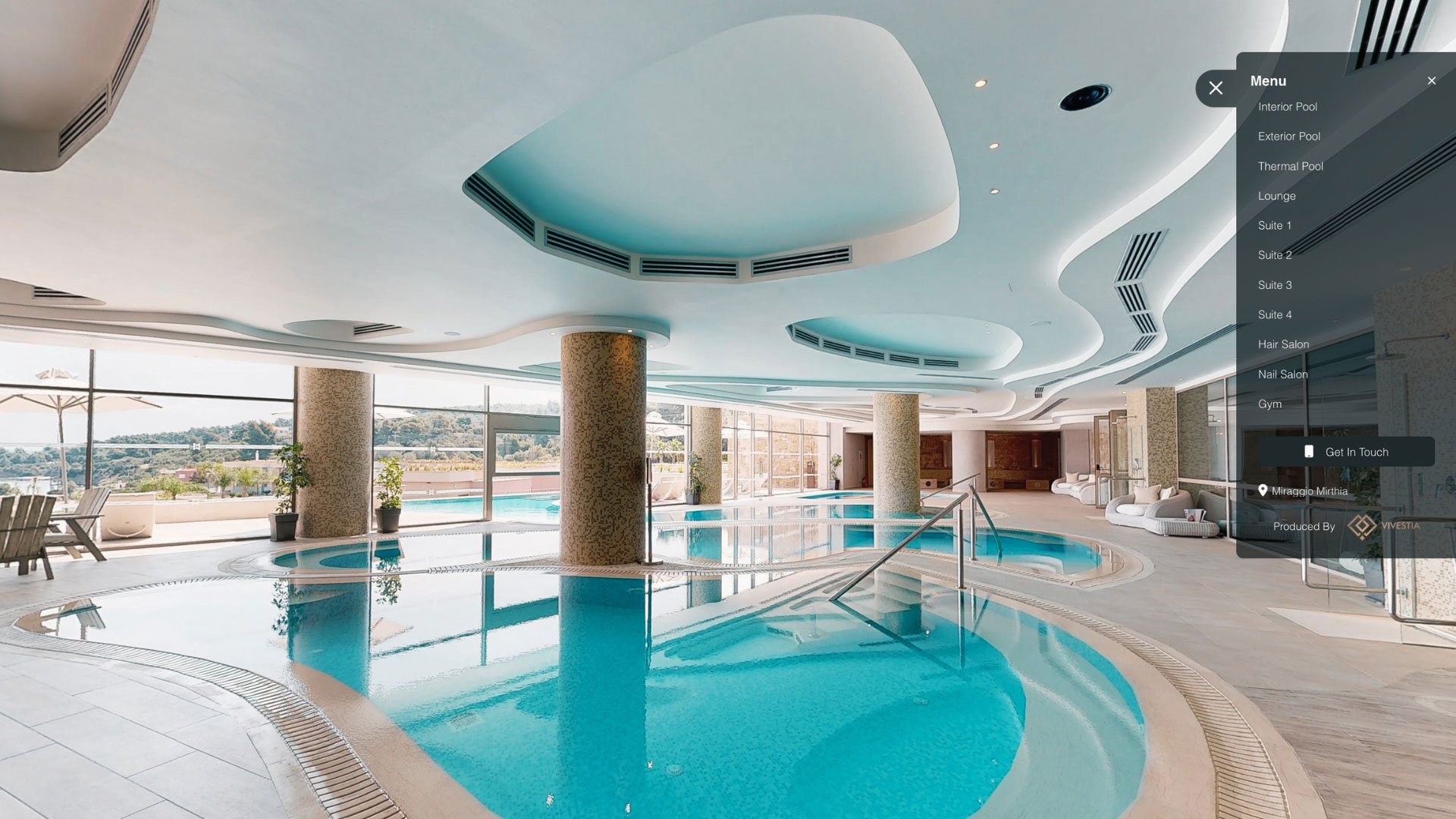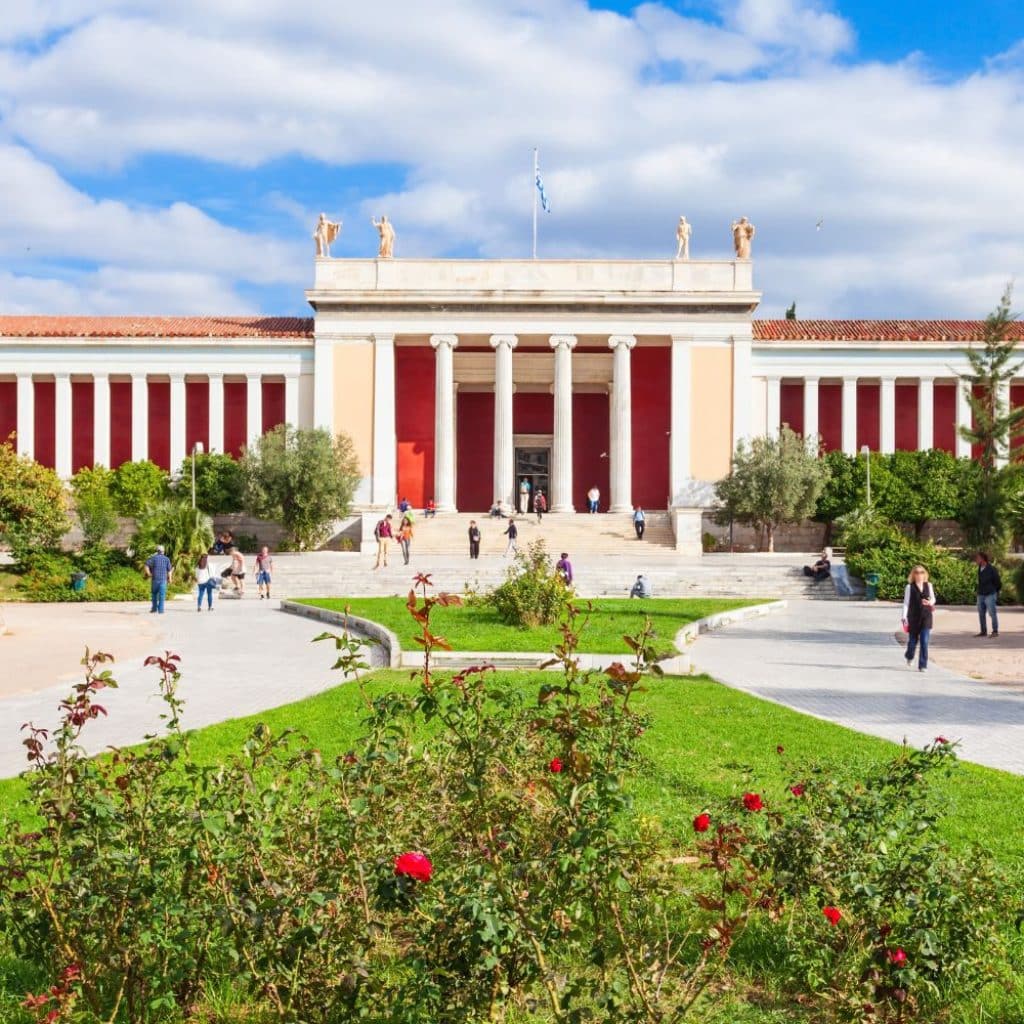Last Updated on 29/04/2024 by Manolis Maragkoudakis
What is a 360 virtual tour?
Have you ever been tempted to journey to an exotic locale, indulge in a luxury hotel, and immerse yourself in top-tier hospitality? The allure of visiting new destinations and staying in lavish hotels is appealing, but not everyone can afford the time or money for such trips. Thankfully, technological advancements have opened up new ways to experience these places. Virtual 360-degree tours let you virtually enter your dream hotel and navigate its entirety from the comfort of home. This article will delve into the advantages of virtual tours for hotels, explain their operation, and discuss their influence on the hospitality industry.
Benefits of Using 360 Virtual Tours for Hotels
360 virtual tours provide numerous advantages for hotels. First, they enable prospective guests to examine the hotel’s facilities and amenities prior to making a reservation. This aids in ensuring guests are well-informed about their accommodation choices and what they can anticipate during their stay. Additionally, 360 virtual tours serve as an effective marketing strategy to draw in new visitors. A well-crafted virtual tour can highlight the distinct attributes of the hotel, distinguishing it from its competitors, which can result in more bookings and higher profits.
Another advantage of utilizing 360 virtual tours is the capacity to offer a tailored experience for guests. Virtual tours allow guests to familiarize themselves with the hotel’s layout and select a room that aligns with their preferences. Options might include choosing a room with a scenic view, a more spacious bathroom, or a balcony. By delivering a customized experience, hotels can enhance guest satisfaction and foster loyalty.
How 360 Virtual Tours Work?
360 virtual tours are created using specialized cameras that capture images from every angle. These images are then stitched together to create a seamless panoramic view of the hotel’s interior and exterior. The virtual tour is then uploaded to the hotel’s website or a third-party platform, allowing potential guests to explore the hotel from anywhere in the world
To explore a 360 virtual tour, guests can use their computer or mobile device to move through the hotel’s environment. They have the ability to zoom in and out, spin the view around, and visit various parts of the hotel. The virtual tour is interactive, giving guests the power to manage how they view it. This offers a more captivating and immersive experience compared to standard photos or videos.
The Impact of 360 Virtual Tours on the Hotel Industry
The adoption of 360 virtual tours has profoundly influenced the hotel industry. Hotels utilizing virtual tours have experienced higher booking rates, improved guest satisfaction, and increased online engagement. These tours offer prospective guests a vivid and engaging view of the hotel, aiding them in making well-informed accommodation choices. As a result, hotels have seen a boost in conversions and revenue.
Moreover, virtual tours have become a crucial marketing instrument for hotels. In an era dominated by online booking platforms and intense competition, hotels are compelled to discover innovative methods to distinguish themselves and draw in guests. Virtual tours offer a distinctive and interactive way to highlight a hotel’s amenities and facilities, differentiating it from its rivals.
Creating a 360 Virtual Tour for Your Hotel
If you’re a hotel owner or manager, creating a 360 virtual tour for your hotel can be a great investment.
The Future of 360 Virtual Tours in the Hotel Industry
As technology evolves, the integration of 360 virtual tours in the hotel industry is anticipated to increase. These tours offer a distinctive and interactive method for hotels to display their amenities and facilities, allowing them to differentiate themselves from competitors. Furthermore, virtual tours can deliver a more customized experience for guests, enhancing their satisfaction and loyalty.
Looking ahead, virtual tours are likely to become more sophisticated with the incorporation of emerging technologies like virtual reality and augmented reality. This advancement could offer an even more immersive and captivating experience for guests, further distinguishing hotels from their competitors.






Post Discussion